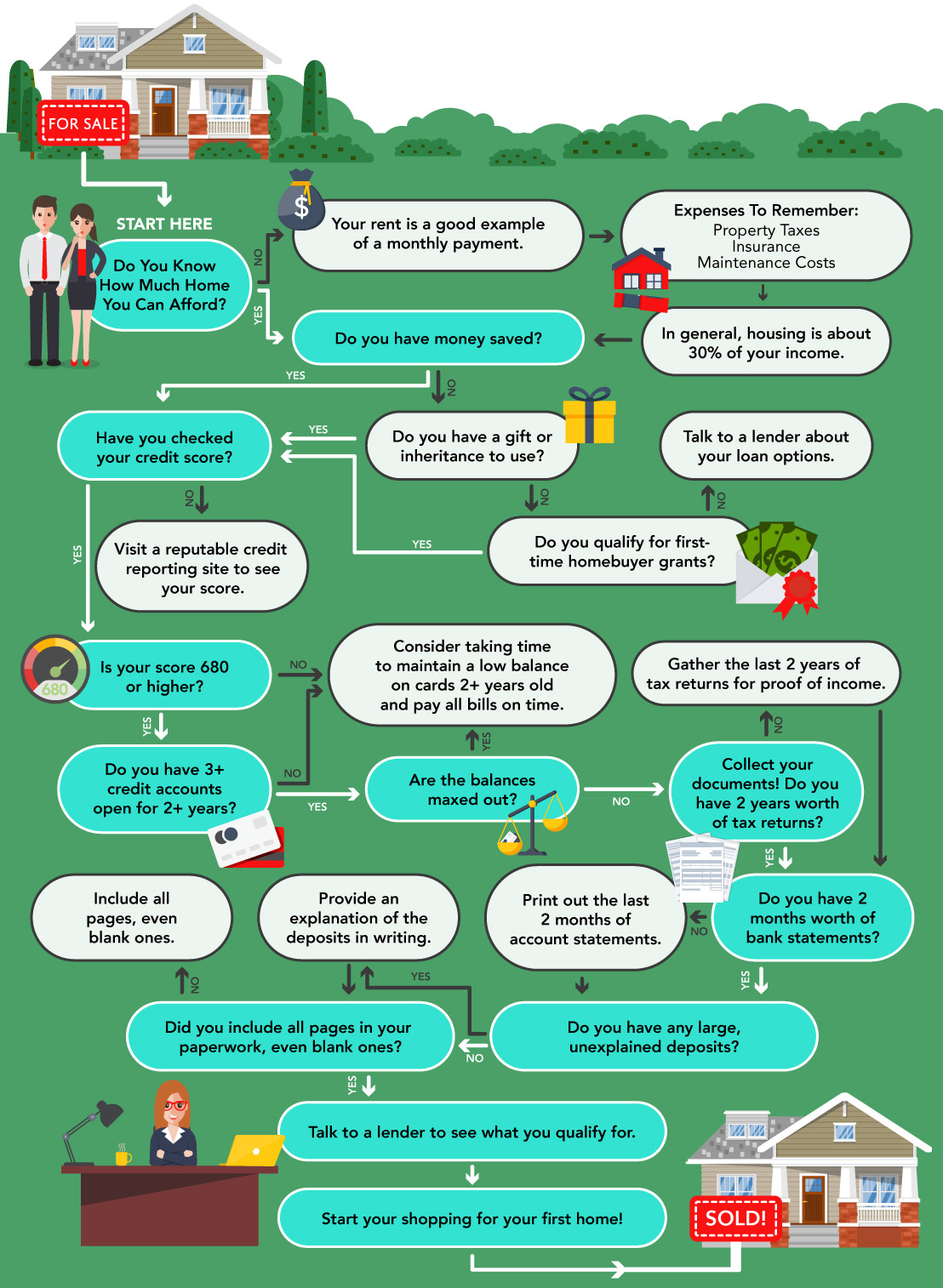As a first time homebuyer, the process from house hunting to home ownership may seem like a steep hill to climb and without the right guidance, that can certainly be the case. As a lender, we understand exactly what you’re going through and have put together this nifty guide on getting you from house hunting to home ownership.
1. Know What You Can Afford
Unless you struck it rich or recently won the lottery, you likely can’t “afford” a $100,000 house with cash. If that’s the case, join the ranks of the typical homeowner and understand that financing is practically the only way to buy your first home. To figure out what you can afford use these tips:
- If you’re renting, try to stay within your current rental budget.
- Factor in new expenses such as homeowner’s insurance, electricity bills, water bills, and local property taxes.
- Consider how your bills will be affected by upgrading or downgrading square footage for your new home.
Understand, though, that depending on how much down payment you put towards your home purchase will depend on how the mortgage is structured. For example, you may be able to pay your taxes, homeowner’s insurance, and PMI monthly along with your mortgage principal.
2. Do Some Rough Math
Once you’ve got a hold on how much you can afford, use an online mortgage calculator to figure out approximately what purchase price you can afford. This, of course, is rough math.
Bear in mind that there are generally quite a few fees associated with your initial purchase including bank fees such as loan origination, private mortgage insurance (PMI), and general closing costs from both your lender and from the title company you choose to use.
Even if you’re prepared to put 20% down on your loan, many first time homebuyers are caught off guard by how much they really need to cover additional closing costs and fees associated with the sale. It’s a good idea to give yourself plenty of financial cushion to cover those costs.
3. Consider Your Credit and Timing
One major consideration is your personal credit. If you’ve got a co-applicant on your loan (such as your spouse), your combined credit and income will likely suffice for most institutional needs. However, it’s important to consider your credit as it is a major factor for both getting approved for a mortgage and getting a competitive interest rate.
If your credit is less-than-perfect or perhaps you haven’t had enough time to build credit, it may be in your best interest to take out some lines of credit and wait a couple of years to establish a stellar credit history all while saving more towards your home. This, of course, all depends on your personal timeline and can vary from case to case.
4. Speak to a Lender
Once you’ve considered all of the factors above, speak to a lender about your options. There are hundreds of mortgage products on offer around the country and no two are exactly alike. This is exactly why you should talk to a professional about the options available to you and allow them to help you find the best option for you and your family.
The professionals at Tidewater Mortgage Services are seasoned loan officers with a great amount of experience helping homebuyers on their journeys from house hunting to homeownership. One call or one visit to our online mortgage application can get you pre-qualified and on your journey towards home ownership!



